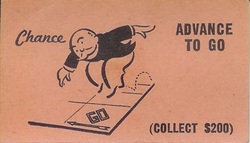
Self-regulation is a massive part of self-leadership, if not being one and the same thing in a different guise. All of us, each and every day, face many decisions that require a sense of regulation and consideration. Often, these decisions are relatively small; sometimes they have far-reaching implications. Our aim is thus to simply be the best self-regulator that we can manage.
What I am describing is called the dual-process model of human behaviour, and it is one of the more intuitive and, I believe, helpful of the many psychological theories out there. The two competing paths are impulsivity and deliberate behaviour, and they exist within us each moment and impact each decision we make. A simple example – knowing that an extra (or just one J) piece of delicious chocolate cake will negatively impact one’s diet, which do you choose? We all face these battles, and if only it were easy enough to follow our ‘plan’, we would all appear to have an iron will and strong determination. What has been discovered, which gives hope to this difficult situation, is that working memory capacity (WMC) greatly influences our ability to hold to considered decisions. Working memory is, essentially, “the mental workspace where important information is kept in a highly active state, available for a variety of other cognitive processes” (Fougnie, 2008).
A truly fascinating relationship exists between self-regulation and WMC. Hofmann et al (2008) have produced research regarding the effect WMC has on self-regulation – which is itself the relationship between automatic, learned responses and controlled, deliberate actions. They propose that greater WMC enables one to inhibit the flow of impulsive desire at the moment of action, and to hold closer to the deliberate plans one had made before the rush of impulse ensued (Hofmann et al, 2008). This ranges from decision-making with regards to food, to how people respond to threatening or frustrating situations. Essentially, the research conducted by Hofmann et al (2008) proposes that WM holds information of greater long-term importance on an accessible level while in the act of making a decision, something that has often been seen as a “virtuous characteristic”.
It has been noted that we can in fact develop this faculty (Berk, 2009), and the best ways to do it are focused attention and deliberate action – the very core benefits of meditation and mindfulness. While we are still unsure exactly how the processes unfold, as with many elements of cognition, we are beginning to see the bottom line with regards to what aids memory development and in turn what developing WM can do for us. It appears that if we can harness some of the benefits of training WM, we might just be able to aid people in being who they really want to be on a long term level by strengthening, essentially, their power of will.
The simplest and most hopeful of concepts that we can take from this? Attention, working memory and self-regulation are concepts that can be trained. Trained with a consistent effort and focus, as we find in meditation and mindfulness practices. Being even slightly more virtuous due to consistent effort of a matter of minutes and moments per day? I’ll take those odds!
Much love!
Dean
References:
Berk, L. (2009). Ch. 12 Moral development. In Child Development (9th edition) (pp. 566-605). Pearson Education Inc.
Fougnie, D. (2008). The Relationship between Attention and Working Memory, In Johansen, N. (Ed), New Research on Short-Term Memory. 1-45.
Hofmann, W., Gschewnder, T., Friese, M., Wiers, R. W. & Schmitt, M. (2008). Working Memory Capacity and Self-Regulatory Behavior: Toward an Individual Differences Perspective on Behavior Determination by Automatic Versus Controlled Processes. Journal of Personality and Social Psychology, 95, 4, 962-977.
What I am describing is called the dual-process model of human behaviour, and it is one of the more intuitive and, I believe, helpful of the many psychological theories out there. The two competing paths are impulsivity and deliberate behaviour, and they exist within us each moment and impact each decision we make. A simple example – knowing that an extra (or just one J) piece of delicious chocolate cake will negatively impact one’s diet, which do you choose? We all face these battles, and if only it were easy enough to follow our ‘plan’, we would all appear to have an iron will and strong determination. What has been discovered, which gives hope to this difficult situation, is that working memory capacity (WMC) greatly influences our ability to hold to considered decisions. Working memory is, essentially, “the mental workspace where important information is kept in a highly active state, available for a variety of other cognitive processes” (Fougnie, 2008).
A truly fascinating relationship exists between self-regulation and WMC. Hofmann et al (2008) have produced research regarding the effect WMC has on self-regulation – which is itself the relationship between automatic, learned responses and controlled, deliberate actions. They propose that greater WMC enables one to inhibit the flow of impulsive desire at the moment of action, and to hold closer to the deliberate plans one had made before the rush of impulse ensued (Hofmann et al, 2008). This ranges from decision-making with regards to food, to how people respond to threatening or frustrating situations. Essentially, the research conducted by Hofmann et al (2008) proposes that WM holds information of greater long-term importance on an accessible level while in the act of making a decision, something that has often been seen as a “virtuous characteristic”.
It has been noted that we can in fact develop this faculty (Berk, 2009), and the best ways to do it are focused attention and deliberate action – the very core benefits of meditation and mindfulness. While we are still unsure exactly how the processes unfold, as with many elements of cognition, we are beginning to see the bottom line with regards to what aids memory development and in turn what developing WM can do for us. It appears that if we can harness some of the benefits of training WM, we might just be able to aid people in being who they really want to be on a long term level by strengthening, essentially, their power of will.
The simplest and most hopeful of concepts that we can take from this? Attention, working memory and self-regulation are concepts that can be trained. Trained with a consistent effort and focus, as we find in meditation and mindfulness practices. Being even slightly more virtuous due to consistent effort of a matter of minutes and moments per day? I’ll take those odds!
Much love!
Dean
References:
Berk, L. (2009). Ch. 12 Moral development. In Child Development (9th edition) (pp. 566-605). Pearson Education Inc.
Fougnie, D. (2008). The Relationship between Attention and Working Memory, In Johansen, N. (Ed), New Research on Short-Term Memory. 1-45.
Hofmann, W., Gschewnder, T., Friese, M., Wiers, R. W. & Schmitt, M. (2008). Working Memory Capacity and Self-Regulatory Behavior: Toward an Individual Differences Perspective on Behavior Determination by Automatic Versus Controlled Processes. Journal of Personality and Social Psychology, 95, 4, 962-977.

 RSS Feed
RSS Feed
